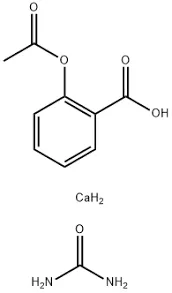- Afrikaans
- Albanian
- Amharic
- Arabic
- Armenian
- Azerbaijani
- Basque
- Belarusian
- Bengali
- Bosnian
- Bulgarian
- Catalan
- Cebuano
- Corsican
- Croatian
- Czech
- Danish
- Dutch
- English
- Esperanto
- Estonian
- Finnish
- French
- Frisian
- Galician
- Georgian
- German
- Greek
- Gujarati
- Haitian Creole
- hausa
- hawaiian
- Hebrew
- Hindi
- Miao
- Hungarian
- Icelandic
- igbo
- Indonesian
- irish
- Italian
- Japanese
- Javanese
- Kannada
- kazakh
- Khmer
- Rwandese
- Korean
- Kurdish
- Kyrgyz
- Lao
- Latin
- Latvian
- Lithuanian
- Luxembourgish
- Macedonian
- Malgashi
- Malay
- Malayalam
- Maltese
- Maori
- Marathi
- Mongolian
- Myanmar
- Nepali
- Norwegian
- Norwegian
- Occitan
- Pashto
- Persian
- Polish
- Portuguese
- Punjabi
- Romanian
- Russian
- Samoan
- Scottish Gaelic
- Serbian
- Sesotho
- Shona
- Sindhi
- Sinhala
- Slovak
- Slovenian
- Somali
- Spanish
- Sundanese
- Swahili
- Swedish
- Tagalog
- Tajik
- Tamil
- Tatar
- Telugu
- Thai
- Turkish
- Turkmen
- Ukrainian
- Urdu
- Uighur
- Uzbek
- Vietnamese
- Welsh
- Bantu
- Yiddish
- Yoruba
- Zulu
Lis . 19, 2024 11:33 Back to list
Optimal Injectable Ivermectin Dosage for Goat Health and Parasite Control Recommendations
Ivermectin Injectable Dose for Goats A Comprehensive Guide
Ivermectin is a widely used antiparasitic treatment that is effective against a range of internal and external parasites affecting goats. This powerful medication plays a crucial role in maintaining the health of livestock, as it not only helps to control parasitic infections but also promotes overall productivity in goat farming. Understanding the correct dosages and administration methods of ivermectin for goats is essential for any goat owner or farmer.
Why Use Ivermectin in Goats?
Goats are susceptible to various parasites, including gastrointestinal worms, lungworms, and ectoparasites like lice and mites. These parasites can lead to serious health issues, reduced weight gain, poor milk production, and in severe cases, death. Ivermectin is preferred due to its broad spectrum of activity, effectiveness, and safety profile when used correctly. It works by interfering with the parasite's nervous system, leading to paralysis and eventual death.
Recommended Dosage
The standard injectable dose of ivermectin for goats is typically 0.2 mg/kg (milligrams per kilogram) of body weight. It is crucial to weigh the goats accurately to ensure the correct dosing. The injectable form usually contains 1% ivermectin solution, allowing for easy administration.
To calculate the dosage, first convert the goat's weight from pounds to kilograms if necessary (1 kg equals approximately 2.2 pounds). For example, if a goat weighs 110 pounds, it converts to about 50 kg. Thus, the required dosage would be
\[ \text{Dosage} = 0.2 \, \text{mg/kg} \times 50 \, \text{kg} = 10 \, \text{mg} \]
ivermectin injectable dose for goats

It is important to administer the ivermectin via subcutaneous injection, typically in the loose skin behind the ear or on the neck. Ensure that the injection site is clean to prevent any potential infections.
Frequency of Administration
The frequency of ivermectin administration can vary based on the level of parasite infestation and the type of goats being treated. Generally, for preventative measures, goats can be treated every 6 to 8 weeks. In cases of heavy infestation or when parasites are confirmed, more frequent treatments might be necessary. Always consult with a veterinarian for specific recommendations tailored to your herd's needs.
Safety and Precautions
Ivermectin is regarded as safe for goats when used according to recommended dosages. However, some precautions must be taken. Avoid using ivermectin in goats that are pregnant or lactating unless specifically directed by a veterinarian. Additionally, always ensure that the product used is specifically formulated for goats, as formulations for other livestock may not be suitable and could lead to adverse effects.
Conclusion
In summary, ivermectin is an invaluable tool for managing parasitic infections in goats. By understanding the proper injectable dose and administration techniques, goat owners can significantly enhance their animals' health and productivity. Regular deworming, guidance from a veterinarian, and observing herd conditions are vital for effective parasite control. By implementing a responsible management strategy, farmers can ensure a healthy and thriving goat operation.
-
Guide to Oxytetracycline Injection
NewsMar.27,2025
-
Guide to Colistin Sulphate
NewsMar.27,2025
-
Gentamicin Sulfate: Uses, Price, And Key Information
NewsMar.27,2025
-
Enrofloxacin Injection: Uses, Price, And Supplier Information
NewsMar.27,2025
-
Dexamethasone Sodium Phosphate Injection: Uses, Price, And Key Information
NewsMar.27,2025
-
Albendazole Tablet: Uses, Dosage, Cost, And Key Information
NewsMar.27,2025













